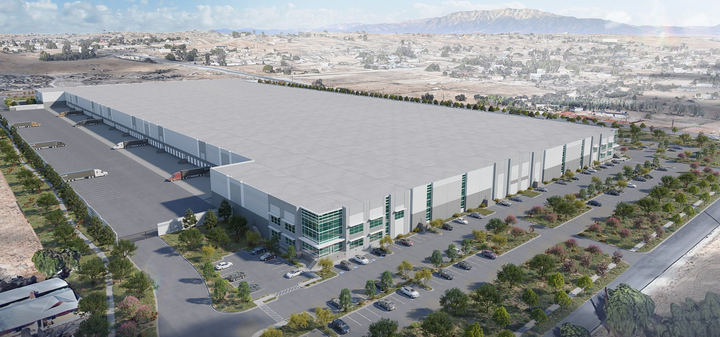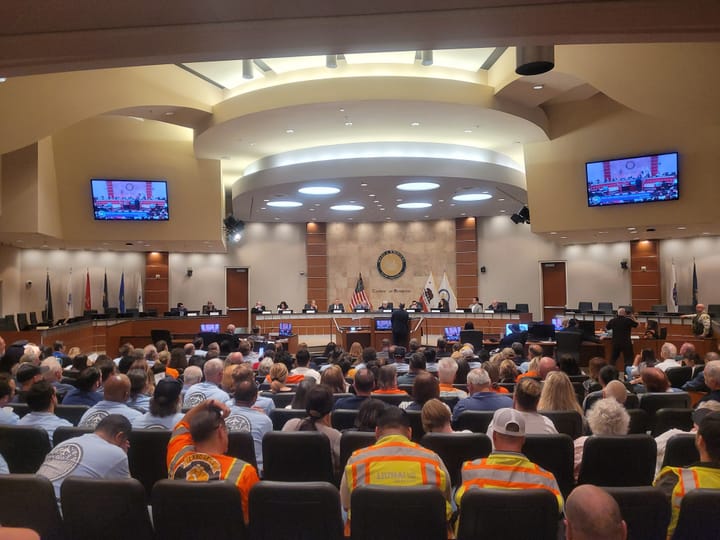SoCal Amazon workers strike: voices from the picket line

Amazon workers at facilities across the U.S. are striking as they call for better wages and working conditions. Pickets being coordinated by the Teamsters union are expected to continue through Christmas.
In San Bernardino, employees at Amazon’s KSBD air hub—the company’s largest West Coast facility—joined the strikes on Saturday. Workers there have raised concerns about unsafe conditions and labor practices in the past, including persuading management to pause operations during wildfire conditions.
“The union has me excited because I’ve seen the positive impact it can have on the lives of working families,” said Tobias Cheng, a three-year KSBD employee. “The quality of life isn’t where it should be and it’s not where it can be.”
Workers are also striking at delivery centers like DAX5 in the City of Industry, where workers have cited exhaustion, stagnant wages and concerns over job security.
Vanessa Valdez, a six-year Amazon driver, said the unpredictability of the job has made it difficult to plan for the future. “I would love to have job security and know I’ll have a place here in another six years,” she said.
Richard Smith, another driver at DAX5, expressed frustration over not being recognized as an Amazon employee despite wearing the company’s uniform and driving Amazon-branded vans. “I am the face of their company,” said Smith. We are the drivers out here delivering smiles to these customers.”
In a statement to KVCR, Amazon spokesperson Eileen Hards said the Teamsters are misleading the public about their involvement with Delivery Service Partners (DSPs), the independent contractors employing drivers like Smith.
“This is another attempt to push a false narrative,” Hards said. “The truth is that the Teamsters have actively threatened, intimidated and attempted to coerce Amazon employees and third-party drivers to join them, which is illegal and is the subject of multiple pending unfair labor practice charges against the union.”
Teamsters leaders argue that Amazon’s control over DSP drivers’ wages and working conditions makes the company a joint employer. They also say they aren’t doing anything illegal.
Driver Ruby Wiggins said the physical demands of the job and financial pressures motivated her to join the strikes.
“In four years, I’ve injured both ankles badly from the wear and tear of this job. My husband and I both work here but we live paycheck to paycheck with his parents,” she said. “If UPS can pay their drivers $30 an hour, Amazon can do it too.”
Despite the challenges, workers say they remain committed to seeking improvements.
“We’re not asking for anything unrealistic,” Cheng said. “I’m just asking for my fair share.”
This story includes reporting from NPR, Frontline Observer reporter Christopher Salazar and Frontline Observer founder Anthony Victoria, who also serves as a California News Fellow for KVCR.



